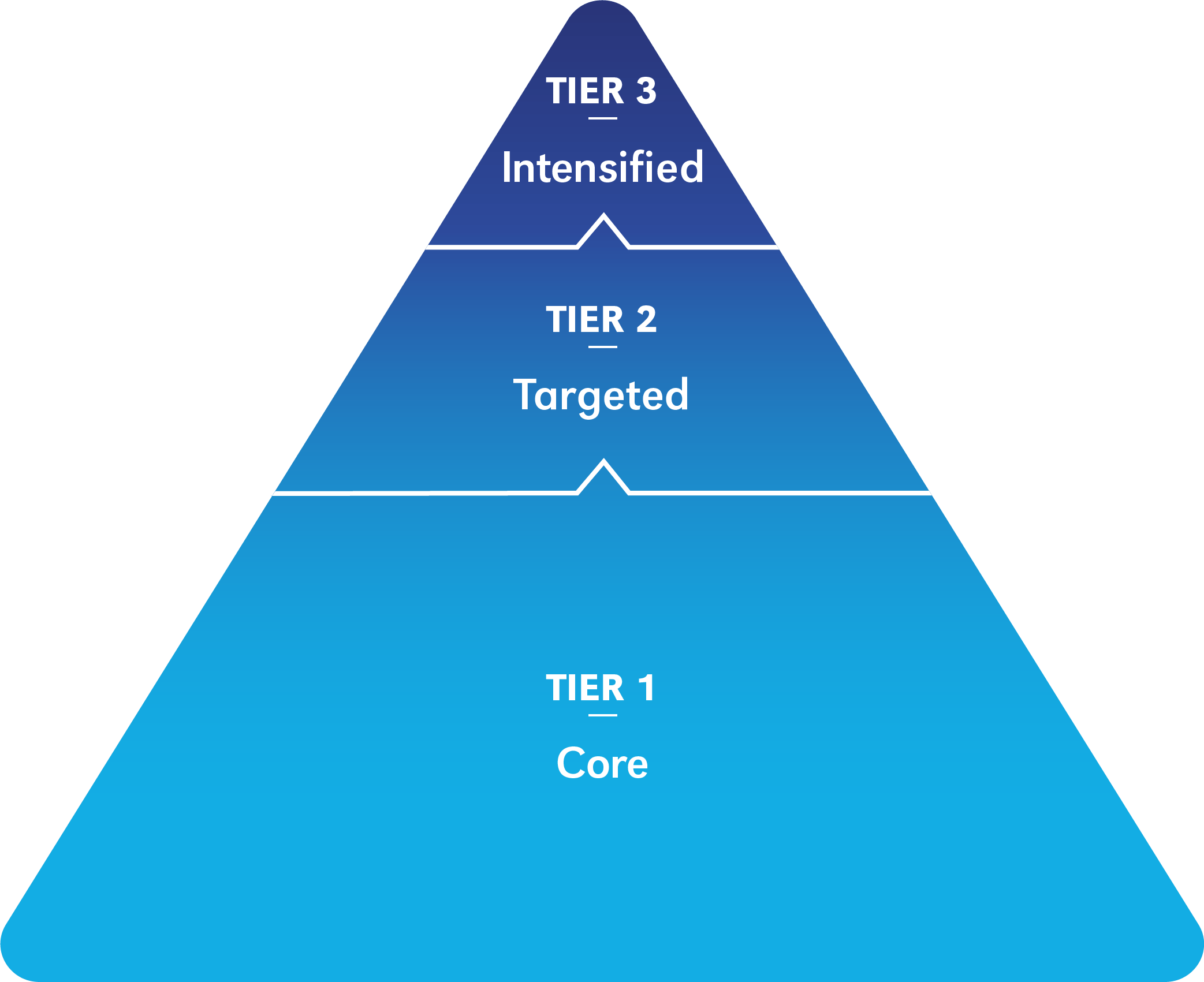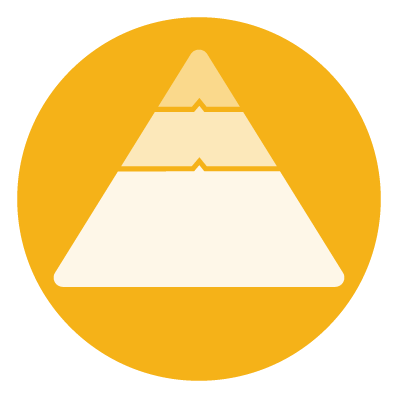Within a layered continuum, tiered supports are provided to meet the unique needs of each student. Supports are dependent on data, and there is flexibility among the tiers, allowing each student to receive the support they need, when they need it. Adults are responsible for monitoring student progress and matching the support to each student’s specific needs.
Overview
The layered continuum is organized around three tiers. Tiered support is designed to meet the needs of the whole child to allow for student growth. The tiers include Tier 1 Core supports for all students, Tier 2 Targeted supports for some students and Tier 3 Intensified supports for a few students. We organize the supports that adults provide into tiers with increasing intensity based on students’ needs. An effective layered continuum of support will leverage evidence-based practices at each tier.
Tier 1 Core
Designed to enhance family engagement, staff wellness and community involvement.
Tier 2 Targeted
Designed to support some students when Tier 1 Core supports alone are not meeting their social, emotional, behavioral, physical, environmental or academic needs.
Tier 3 Intensified
Designed to support a small percentage of students who still may demonstrate unfinished learning with Tier 1 Core and Tier 2 Targeted supports or exceptional learning requiring additional acceleration.

Why it’s Essential
Trend data in Nebraska demonstrates a disparity in the performance of students that are not identified as needing Special Education services and those that are. NeMTSS provides a purposeful approach to offer layers of support with increasing intensity to meet students’ whole child social, emotional, behavioral, physical, environmental, and academic needs.
Self-Assessment
The following Layered Continuum of Supports items are included on the NeMTSS Self-Assessment:
- Core academic practices that clearly identify learning standards, schoolwide assessments and schoolwide expectations for instruction
- Core behavior and social-emotional practices that clearly identify schoolwide expectations, social-emotional skills instruction, classroom management practices and schoolwide behavior and social-emotional data
- Supplemental academic intervention practices
- Supplemental behavior and social-emotional intervention practices
- Support teams use a systematic problem-solving process to plan for student interventions
- Interventions are intensified, as appropriate, using evidence-based programs, practices and strategies


